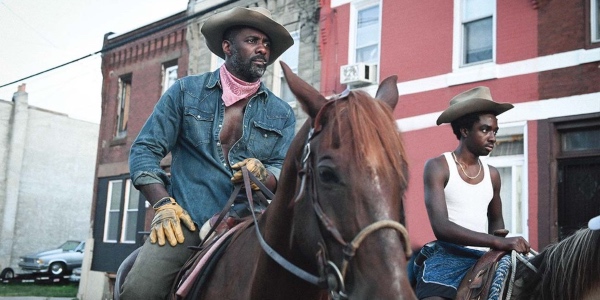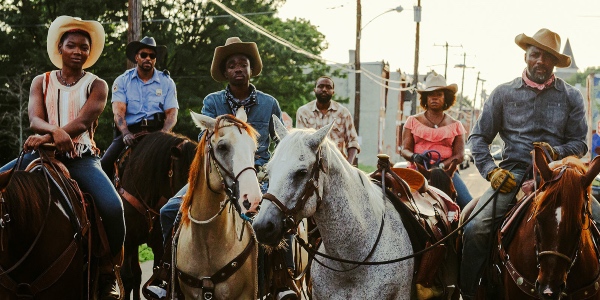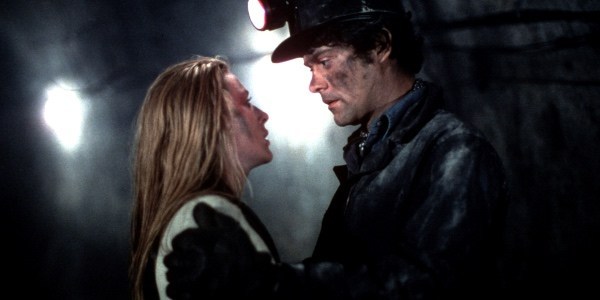Toronto International Film Festival 2020: CONCRETE COWBOY
It feels like forever has passed since spurs were swapped for pedals. Well-stomped paths and pikes were buried by cement and even something as bountiful and elegant as sunlight became hampered by pockets of skyscrapers. The horse, once man’s primary vessel and whose back helped guide and secure our civilizations, was escorted away, begging the question, whatever happened to the rider?
Ricky Staub’s loving feature debut Concrete Cowboy will tell you that aside from a few adjustments here and there, not a whole lot has happened. In fact, our pioneer traditions are still being upheld in the most unlikely of places. Urban horse riders have maintained a presence in North Philadelphia for over a century, instilling purpose, structure, camaraderie, and value onto any who cross through their picket fence.
It is here, in this niche community, that Staub plants his own heartfelt fable, a sweet, yet potent father-son drama. The film, running just short of two hours, is also an acknowledgment, reclamation, and tribute to a long lineage of Black frontiersman that’s largely been swept under the rug. Sure, it may feel familiar, but sometimes, familiar feels good.
Pennsylvania Stud
Inspired by Greg Neri’s novel Ghetto Cowboy and the real-life Fletcher Street Stables, the story follows Cole (Caleb McLaughlin), a young, troubled teenager from Detroit. After an opening telephone message clues us in on a steady pattern of fighting at school, his mother, driven by either tough love or long-gone patience, tosses his clothes in a trash bag and hauls her son eastward into Philly, where Cole’s estranged father Harp (Idris Elba) has a couch set up.

Despite the quickness of the operation, the living arrangement is not ideal. Aside from the chalk-colored horse taking up the bulk of the kitchen, Cole, reasonably distraught by the upheaval of his life, doesn’t want anything to do with his father and especially not with the odd, messy stables he helps keep around the corner. McLaughlin, the Stranger Things star also making his feature debut here, amply embodies the bitterness and confusion of his character’s situation. What’s more impressive, however, is his ability to stifle those emotions in the wake of support.
These Philly streets are not without their problems – the street game is introduced and embodied by Cole’s cousin Smush (Jharrel Jerome), who tries to sneak a rough-riding partnership out of their reunion – but with the help of the stable, they eventually seep their way into Cole’s veins. The community is at any given time both helpful and scornful; tracks of young men making bad decisions have fully milked their patience – at one point, a neighbor mentions her prayer sheet includes every young man on the block. But if Dan Walser and Staub’s screenplay says anything, it’s that this North Philly community is willing to help anyone who is willing to help themselves.
A Film of Brotherly Love
The love and compassion that went into this story can never be questioned. Staub spent years entrenched with the community, properly and fully researching the block’s demeanor before even picking up the camera. Many of the people the director worked with and learned from found their way into the film, most of whom playing versions of themselves.

What Staub may not have anticipated is the fact that the combined passion and enthusiasm from these pedestrians-turned-performers is regularly the mold of his most affectionate and affective scenes. This isn’t to criticize McLaughlin or Elba per se – Elba, a painfully misused performer around Hollywood, pulls off a scene-gnawing version of cowboy machoism throughout – but the first-time director has a lot to be thankful for in his inexperienced cast.
Conclusion: Concrete Cowboy
As a commentary, Concrete Cowboy elects to address but not develop. Its raison d’etre is rather to promote alternative activities for inner-city youth, while also acknowledging the forces dead set against stopping them. Staub works comfortably within common tropes, and while most of the film is too easy to predict, there’s a charm in watching horses stir across the street.
And there’ll always be a representational purpose. Around a trash can campfire, the film directly targets the “John Wayne bullshit” that has obscured the Black cowboy for generations. Concrete Cowboy will ensure they’re never forgotten again.
Are you excited to see Concrete Cowboy? Let us know in the comment section below!
Concrete Cowboy premiered at the Toronto International Film Festival on September 13th.
Watch Concrete Cowboy
Does content like this matter to you?
Become a Member and support film journalism. Unlock access to all of Film Inquiry`s great articles. Join a community of like-minded readers who are passionate about cinema – get access to our private members Network, give back to independent filmmakers, and more.
Join now!




